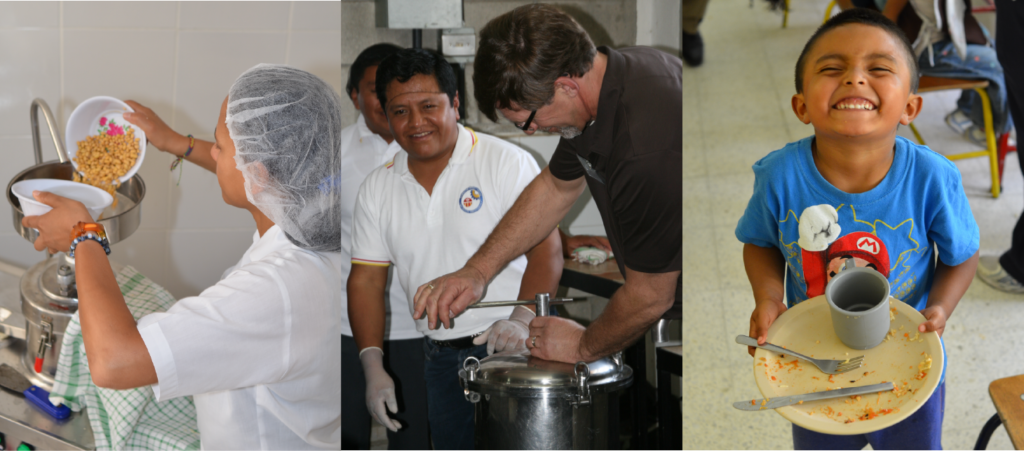
Opinion Editorial by former WISHH Chairman David Iverson, a South Dakota soybean grower and United Soybean Board Secretary and Sustainability Target Area Coordinator
My 6’4” height fascinated the giggling Guatemalan children, but they quickly overcame their shyness after introductions by the Guatemalan Rotary Club leaders who supported their soy-based school nutrition program. My popularity grew even more when the kids played a game that benefited from my giving them a leg up to reach above my head.
Global food security is, however, no game. In a world that needs high-quality protein, U.S. soybean growers have made a serious commitment to make soy protein part of the solution.
A global pandemic was not on the horizon when I served as a volunteer chairman of the American Soybean Association’s World Initiative for Soy in Human Health Program from 2010-2013. However, the pandemic is a reminder of the importance of agriculture, particularly soybeans, as well as WISHH strategic partnerships and trade. All three are key ingredients in global efforts to ensure that kids such as the ones I met in 2011 have affordable and nutritious foods to let them grow, learn, and play.
I was thankful to learn that WISHH’s strategic partnership with Guatemalan Rotary Clubs has played a positive role during the pandemic. According to the USDA International Food Security Assessment released in July, the prevalence of food insecurity in Latin America and the Caribbean is currently estimated at 25.6% in 2021; meaning 44.7 million people are estimated to be food insecure. Thankfully, USDA projects that food insecurity in the region will drop to 12.3% by 2031.
According to the World Food Programme’s (WFP) July 2021 brief, stunting of Guatemalan children aged 6-59 months is among the highest in the world and the highest in the region. Those frustrating figures are exactly what WFP and Guatemalan Rotary Clubs’ joint Comité Pro Nutrición are committed to reduce.
In the mid-2000s, WISHH invited Guatemalan Rotary Club leaders to travel to Illinois for training to support their goals to deliver high-quality, nutritious, soy-based foods and beverages to Guatemalan communities and thus reduce rates of malnutrition in the country. These trips and training planted the seeds for further cooperation.
Throughout the years, WISHH has supported the initiative with nutrition education seminars that share the nutritional benefits of soy. The Comité Pro Nutrición has installed small soy processing machines, commonly called “soy cows,” throughout Guatemala, including in schools and orphanages in Guatemala City, Sumpango, Antigua and Mixco. The Comité works together with community leaders to produce and provide soy in beverages to reduce rates of malnutrition in children under five and to improve the nutrition of pregnant and lactating women.
Soy milk production generates a by-product called okara. Protein-rich okara adds nutrition to tortillas, cookies, breads, empanadas, muffins, and even granola. Part of the Comité’s work is to educate women entrepreneurs on the nutritional value and ease of using okara in their businesses. One of the projects even produces chocolate bars containing okara they can sale.
The Comité Pro Nutrición has remained committed to these efforts—even amid COVID-19 setbacks. Guatemalan community leaders have sustained the delivery of nutritious, soy-based foods to those who need them most.
WISHH is proud to have played a small part in the Comité’s commitment to the reduction of malnutrition in Guatemala, and we’re proud to say that high-quality U.S. soy is improving the nutritional profiles of Guatemalan children. We may never grow great coffee like they do in Guatemala, but we grow great soybeans here in the United States! Soybeans are improving food security around the world and offering a nutritional “leg up” to children who will reap those health benefits their entire lives.
WISHH is a program of the American Soybean Association and is funded in part by the United Soybean Board and state soybean board checkoff programs.
